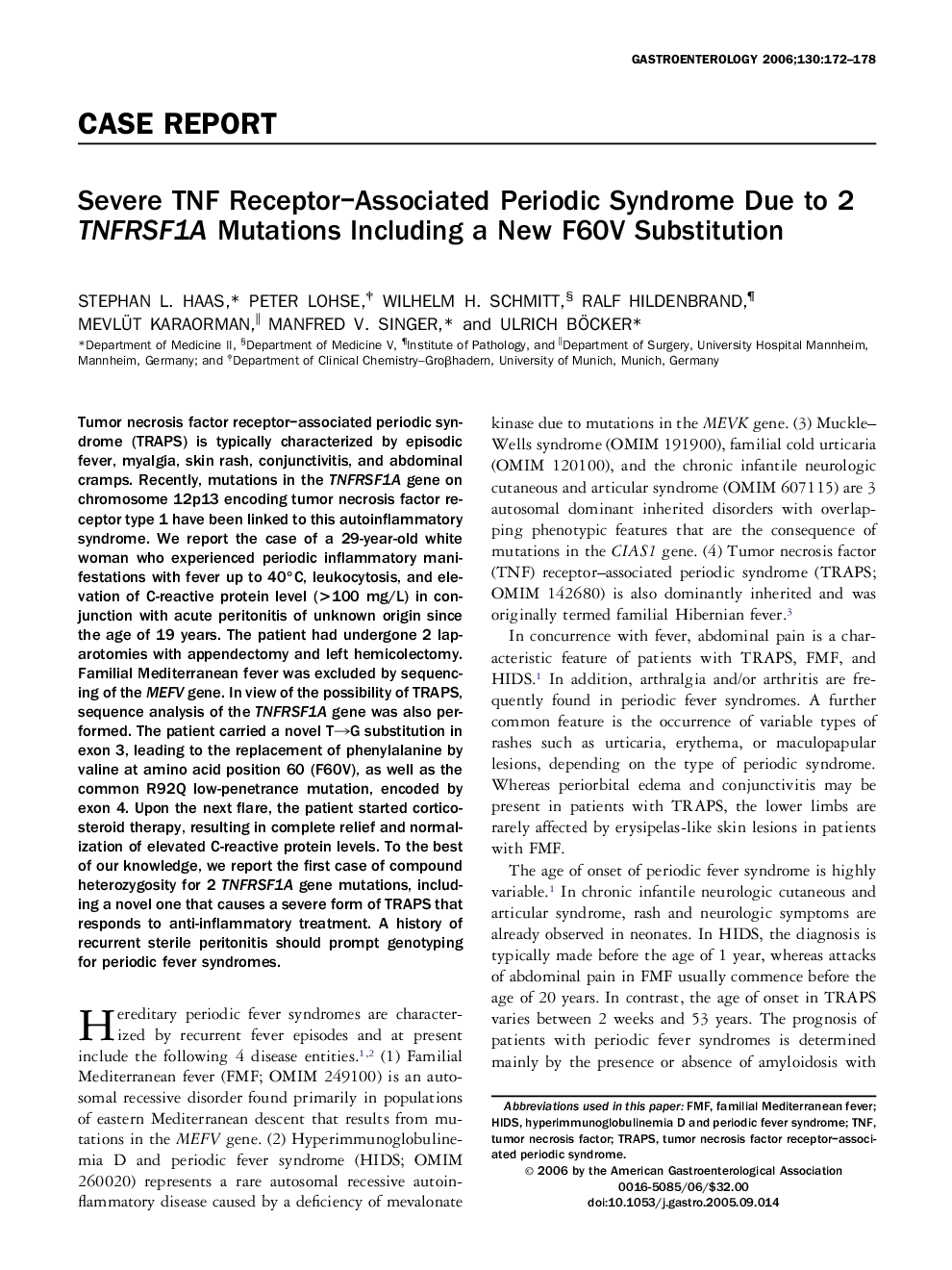| Article ID | Journal | Published Year | Pages | File Type |
|---|---|---|---|---|
| 3297996 | Gastroenterology | 2006 | 7 Pages |
Abstract
Tumor necrosis factor receptor-associated periodic syndrome (TRAPS) is typically characterized by episodic fever, myalgia, skin rash, conjunctivitis, and abdominal cramps. Recently, mutations in the TNFRSF1A gene on chromosome 12p13 encoding tumor necrosis factor receptor type 1 have been linked to this autoinflammatory syndrome. We report the case of a 29-year-old white woman who experienced periodic inflammatory manifestations with fever up to 40°C, leukocytosis, and elevation of C-reactive protein level (>100 mg/L) in conjunction with acute peritonitis of unknown origin since the age of 19 years. The patient had undergone 2 laparotomies with appendectomy and left hemicolectomy. Familial Mediterranean fever was excluded by sequencing of the MEFV gene. In view of the possibility of TRAPS, sequence analysis of the TNFRSF1A gene was also performed. The patient carried a novel TâG substitution in exon 3, leading to the replacement of phenylalanine by valine at amino acid position 60 (F60V), as well as the common R92Q low-penetrance mutation, encoded by exon 4. Upon the next flare, the patient started corticosteroid therapy, resulting in complete relief and normalization of elevated C-reactive protein levels. To the best of our knowledge, we report the first case of compound heterozygosity for 2 TNFRSF1A gene mutations, including a novel one that causes a severe form of TRAPS that responds to anti-inflammatory treatment. A history of recurrent sterile peritonitis should prompt genotyping for periodic fever syndromes.
Keywords
Related Topics
Health Sciences
Medicine and Dentistry
Gastroenterology
Authors
Stephan L. Haas, Peter Lohse, Wilhelm H. Schmitt, Ralf Hildenbrand, Mevlüt Karaorman, Manfred V. Singer, Ulrich Böcker,
